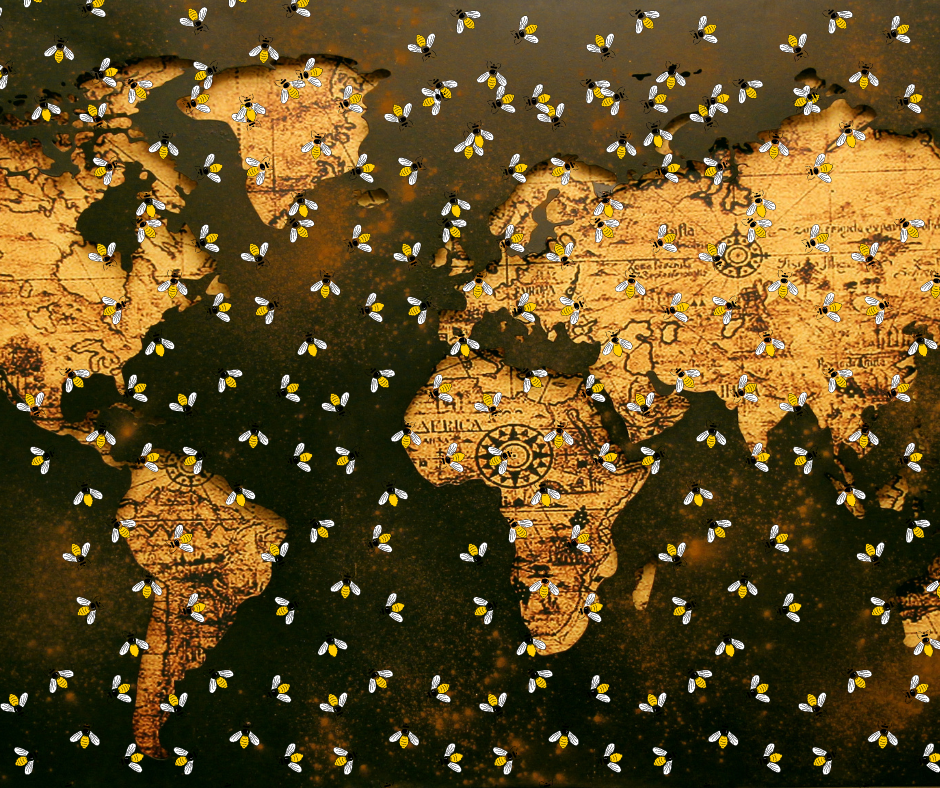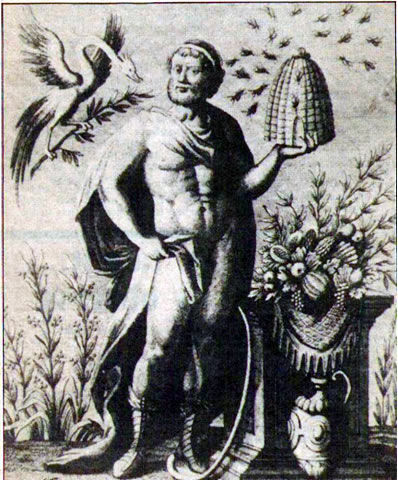As a beekeeper, I have been fascinated by the rich history and symbolism surrounding the honey bee. And in my personal opinion, Ancient civilizations had the same fascination with bees as we modern beekeepers have. These tiny creatures, and the honey they produce, have been a part of human culture for thousands of years, appearing in myths and philosophies worldwide.
Even still to this day we still use bees and their natural environment in our society and productivity, a strong independent female is known as a “Queen Bee”, and at our workplace when all workers are “humming along” we consider ourselves to be “busy as a bee” and even in some political circles, we tend to say things like a “hive” mentality. I know that I’ve used these phrases more than once before I was a beekeeper. Haven’t you?
From the ancient cultures of Southern Africa to the civilizations of ancient Greece and Egypt, the bee has held a special significance, symbolizing vital principles and embodying the soul.
All Around The World, you Find Bees

In ancient Greece, the bee was sometimes identified with Demeter, the goddess of the earth and crops, and was likened to the bee nymphs or Mellissae that appear in Greek mythology. These nymphs gave the gift of prophecy to Apollo, and the priestess at Delphi, through whom Apollo foretold the future, was known as the Delphic Bee. The bee also appears in Hinduism and modern religions, where it symbolizes the bittersweet nature of love.
In Northern Europe, the Roman-Germanic goddess Nanosvelta carried a staff with a beehive on top, and in Eastern Europe, there was a bee God called Babilos and a goddess called Austeia.
In Russia, images of a bee God, Zosim, were placed in beehives for protection, and the Mordova, an indigenous Russian people, had a beehive God, the eldest son of their mother goddess.
The ancient Maya of Mesoamerica kept native stingless bees and celebrated the bee God, Ah Mucan Cab, by drinking honey and balche, an alcoholic drink. They also burned offerings and asked for abundant flowers so the bees could produce plenty of honey.
Myth Legend of Bee Origin

In Greek mythology, the God Aristaeus is credited with being the first beekeeper, having been taught to tend bees by Mother Earth Gaia’s nymphs. According to legend, Aristaeus fell in love with Eurydice, the wife of Orpheus, and as punishment, the nymphs destroyed his bees.
Aristaeus had to appease the nymphs to recover his bees by slaughtering four bulls and four heifers, leaving their carcasses in a leafy grove as a sacrificial offering. After nine days, bees swarmed from the corpses and Aristaeus was able to rebuild his hive and pass on his knowledge of beekeeping to humankind.
This belief that bees were born from the carcass of dead animals persisted for centuries.
In conclusion,
The honey bee has been a source of fascination and inspiration to many cultures throughout history. Its symbolic importance and representation of the soul and life, as well as its vital role in pollination, make the honey bee a truly remarkable creature.

